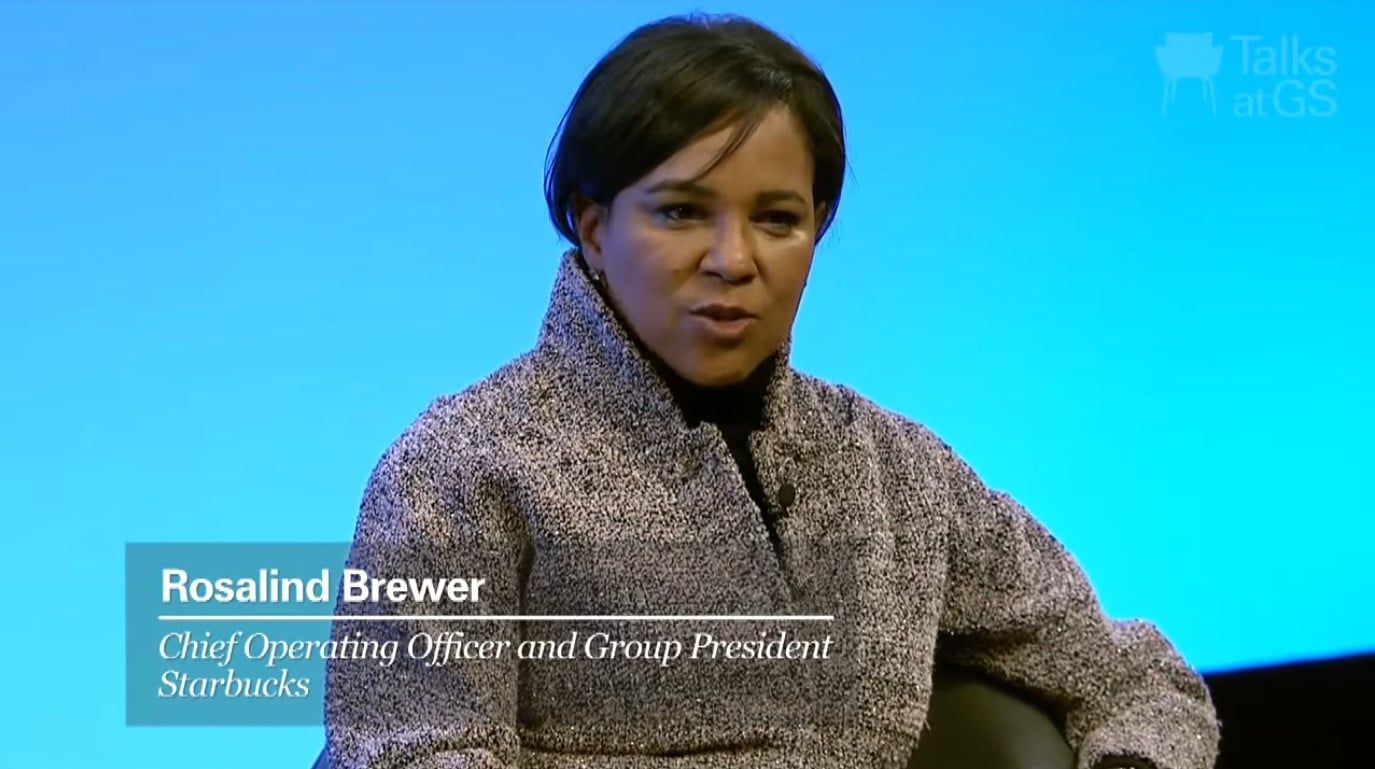In this episode of Talks at GS, Starbucks COO and Group President Rosalind Brewer discusses her groundbreaking career, navigating the growth strategy of Starbucks and her thoughts on bringing more racial and gender diversity to the highest levels of corporate America.
Rosalind Brewer: COO And Group President, Starbucks
Q4 hedge fund letters, conference, scoops etc
Transcript
Thank you everyone for joining us for this Talks at GS, I am excited to have Rosalind Brewer are with us today. We have a lot to talk about with Rosalind she has an incredibly impressive career and and I think a lot to share with us today. Rosalind thank you.
Thank you for having me. Thank you.
So I thought like most things we should start at the beginning which is where you grew up and where you're from and what that's taught you in life and I don't know folks know. But you were born and raised in Detroit.
Yes.
And I think in a particularly interesting time period in that it was post the civil rights movement. You know you were in the area around the time of the U.S. auto manufacturing decline which clearly had an effect on the local economy. Tell me a little bit about that environment and what you learned from growing up in Detroit at that point in time.
All of those things that you described actually for myself or my family were actually absolutely fantastic events and it's fantastic because my parents were born in Alabama. And at the time when the auto industry began to boom my parents benefited from my parents did not go to college. My siblings and I are the first college educated in our family. There's five of us. And so I had two parents working in the auto industry. And so what you describe as post civil rights and maybe a depressed area. For me I felt like it was glorious because it was a time where you know things were becoming much more industrialized and we benefit from that and so my family was able to. My parents migrated from the south to the Midwest and it was fantastic. And actually I also worked in the automotive industry my summer internships were with General Motors and I worked in their chemistry and in Indy area.
So let's talk about college. You went to Spelman College which is an HBC you what experience do you think you derived from attending an HBC you that you may not have gotten at any other type of university.
Sure. So first of all Spelman is unique that it's also an all women's institution and a historically black college.
And so in that there's two things I mean that represents me very well. And so it's a double minority.
I will tell you that Spelman is likely outside of the upbringing of my parents. The single most effective factor in my life for where I am and how I have gotten to where I am when I came to Spelman being youngest of five all of my siblings had gone to college in Michigan and I moved 750 miles away so I was very independent but I had no one around me and the faculty and the staff at Spelman College will absolutely adopt you in both good ways and bad.
You run past curfew. They are looking at you.
You know you do great things and they celebrate you loudly. And my sophomore year my father became very ill first diagnosed with cancer and then six weeks before I graduated. My father passed away and so the college chaplain the head of the chemistry department the president of the college they all wrapped their arms around me. I got to the funeral. I had my gym mat happening the day after his service a rearranged everything for me. I took my final exams later and it was just such a nurturing not only in a state of crisis but even through the learning process. My organic chemistry teacher she would write with her eyes close. You know we would call her like the she was like an orchestrator but she really taught she just she would look at you and say you're not getting this are you come here for a minute. And she'd pull your aside and say you know and I don't know. Many institutions will do that. And also Dr. Gilliard who was my organic teacher she looked like me she was an African-American female. She was my Sa'ar too so she really taught me a lot of stuff. She took me under her elbow and she will never forget her for that because I likely wouldn't have gotten through had are getting physical chemistry and calculus all at the same time. But I got through it because the they were investing in me.
Well you also gave the 2018 commencement address at Spelman.
And there were two things you said that really stood out at least to me.
One of them was that you described your generation of black women as being Generation P for perseverance. And you.






